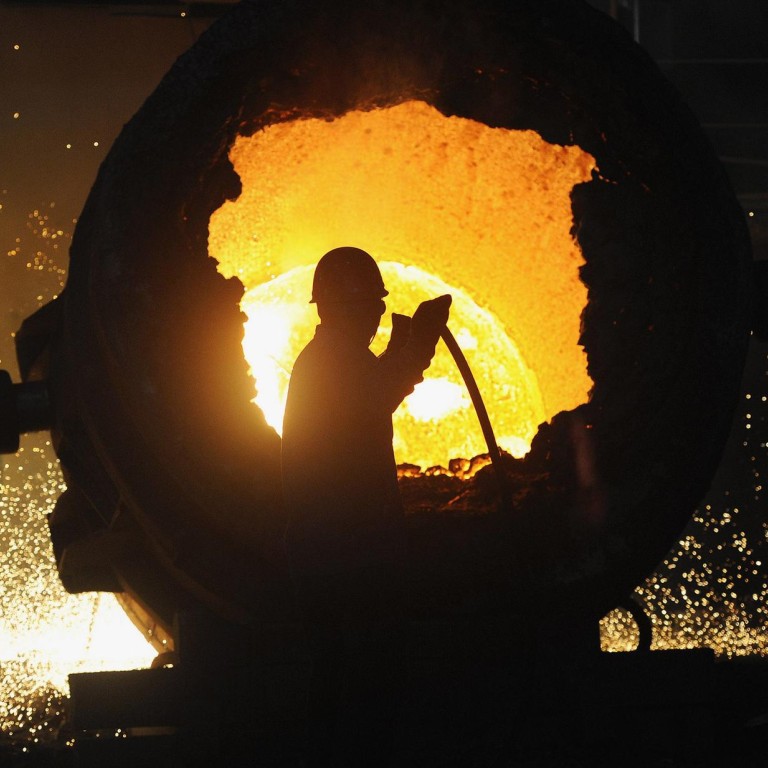
Scientists say planet is warming at half the forecast rate
We see that recent leaks of the UN Intergovernmental Panel on Climate Change (IPCC) report due to be published later this month show that the planet has been heating up at half the rate claimed by scientists in the 2007 IPCC report.
We see that recent leaks of the UN Intergovernmental Panel on Climate Change (IPCC) report due to be published later this month show that the planet has been heating up at half the rate claimed by scientists in the 2007 IPCC report.
In that report, scientists said the planet had been warming at 0.2 degrees Celsius every decade. But the new report states the rate has only been 0.12 degrees since 1951.
This is a marked departure from the apocalyptic scenarios that were forecast in earlier reports. It also has implications for policymakers that have spent billions in trying to mitigate this perceived problem.
In another striking departure, the report acknowledges that large areas of the planet were as warm between the period 950 and 1250 as they are now, despite the much lower levels of man-made carbon dioxide.
One of the central arguments of previous IPCC reports has been that man's production of carbon dioxide has contributed to half of the planet's global warming, with the rest coming from natural occurrences such as the change in sun spot activity and ocean warming cycles.
Another difficulty has been that while a quarter of the volume produced by human activity since 1750 had occurred in the past 10 years, the planet's temperature has not risen in the past 17 years. Indeed, the new report says "models do not generally reproduce the observed reduction in the surface warming trend over the last 10 to 15 years".
The IPCC has also scaled down its estimate for the rise in sea level by the end of the century from the somewhat scary one to two metres to 40 to 62 centimetres. The worry is that if climate models exaggerate global warming for past decades, what sort of guide are they for the future.
A recent Nature Climate Change study shows the main climate models have overestimated the rise in temperature of the past 15 years by more than 300 per cent.
Despite all this, the IPCC report will claim that scientists are now 95 per cent certain that humans caused more than half of the global rise in temperature since 1950, an increase from 90 per cent in the 2007 report.
For years the mainland has been trying without success to consolidate the steel industry. That moment may be drawing closer, although not in the circumstances the authorities would have chosen. Chinese steel companies are running out of cash, Xu Kuangdi, the president of the Chinese Society for Metals said at a forum recently, according to .
Over 30 of 86 big and medium-sized steel companies reported a debt-asset ratio of above 75 per cent in the first half of the year, according to government figures. About 20 companies had a debt ratio of above 80 per cent, while five are insolvent.
The 86 firms tracked by the China Iron and Steel Association owed a combined three trillion yuan (HK$3.8 trillion) at the end of June, of which 1.3 trillion yuan was bank loans. This is equivalent to 1.67 times of total sales and 1,327 times of profits in the industry, according to Xu.
To make matters worse, the increase in industry capacity has come at a time of slowing growth in demand. Steel production rose 7.1 per cent from a year ago in the first seven months, while prices dropped 11.85 per cent.
The crackdown on corruption and lavish banquets has hit the mainland's producers of high-end spirits hard. They were also hurt when produced by Hunan company Jiu Gui Jiu was found to contain excessive levels of DBP, an additive that can damage the immune and reproductive systems.
Now the firms are scrambling for financing reports. Sichuan-based Tuopai Shede has seen profits for the first half of the year fall 80 per cent. Several provincial governments, which control liquor companies, have balked at providing extra cash and ordered them to seek private capital.
In July, international drinks firm Diageo became the mainland's first foreign-owned liquor company with its three billion yuan takeover of Swellfun, the Sichuan-based distiller. It took seven years to complete.
Efforts by the big companies to go downmarket have been relatively unsuccessful since this brings them into competition with well-established smaller distillers.

